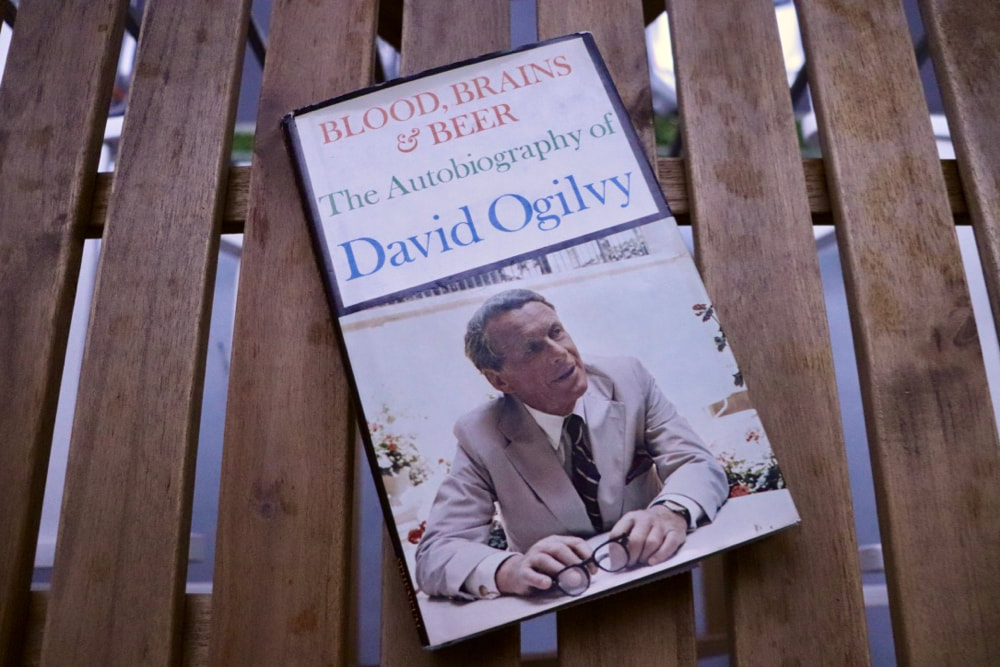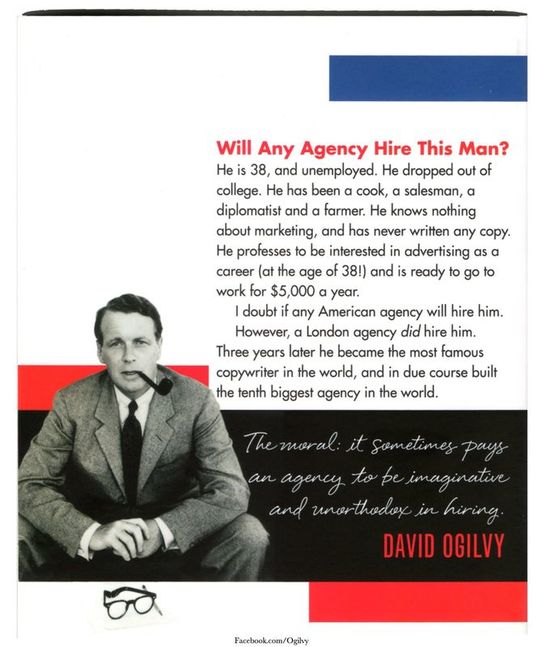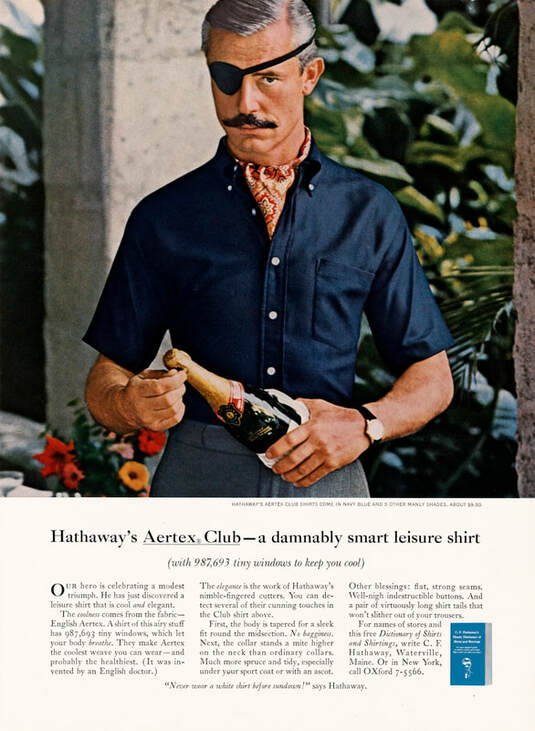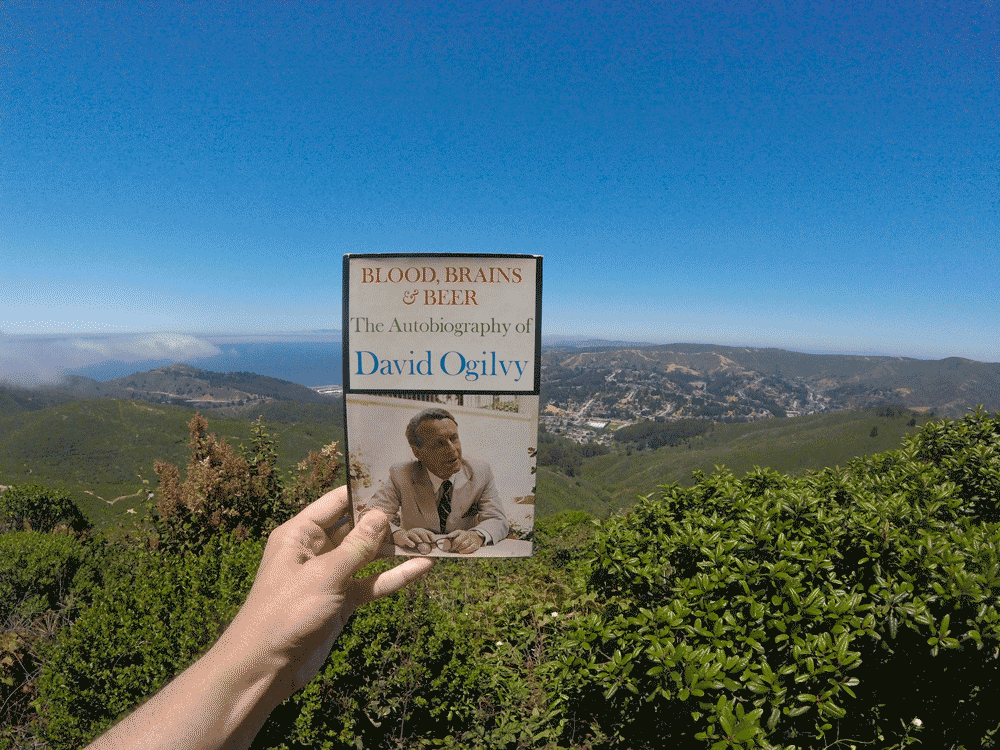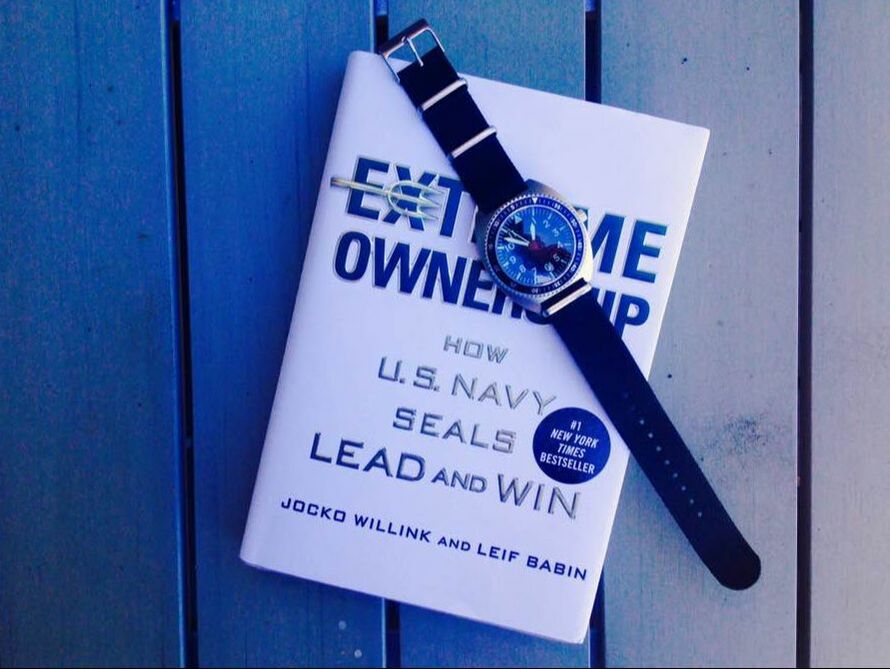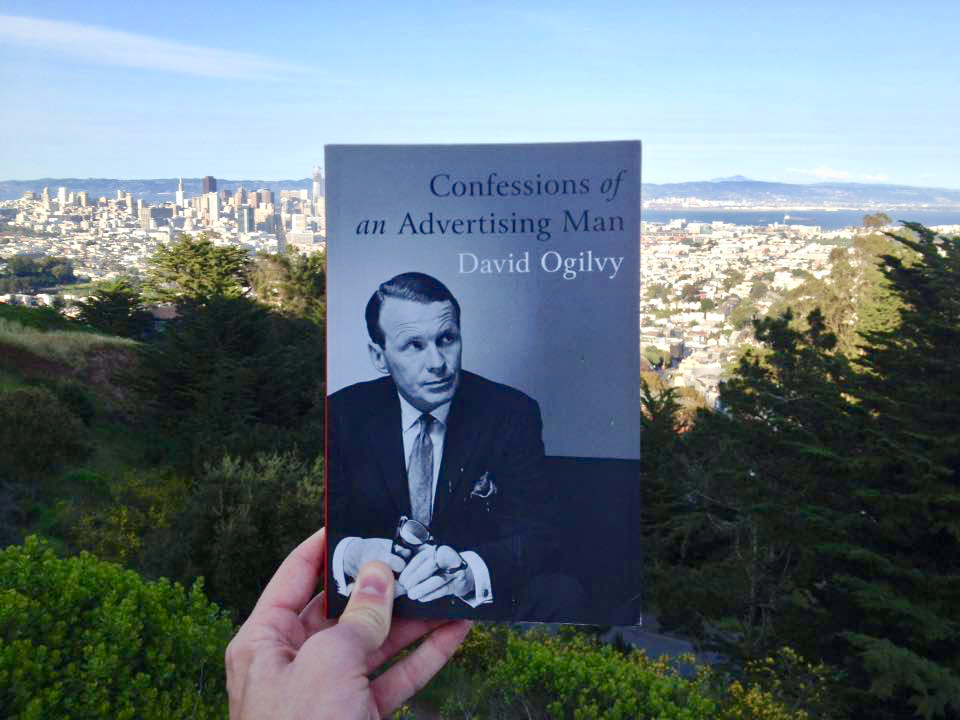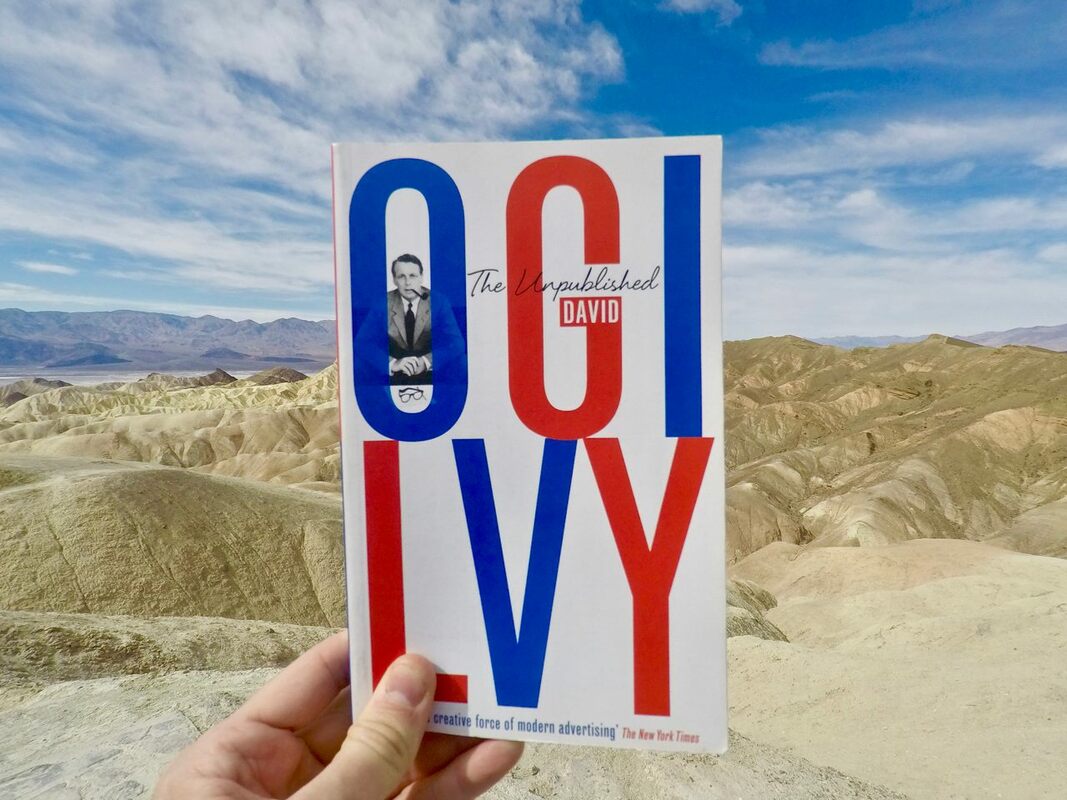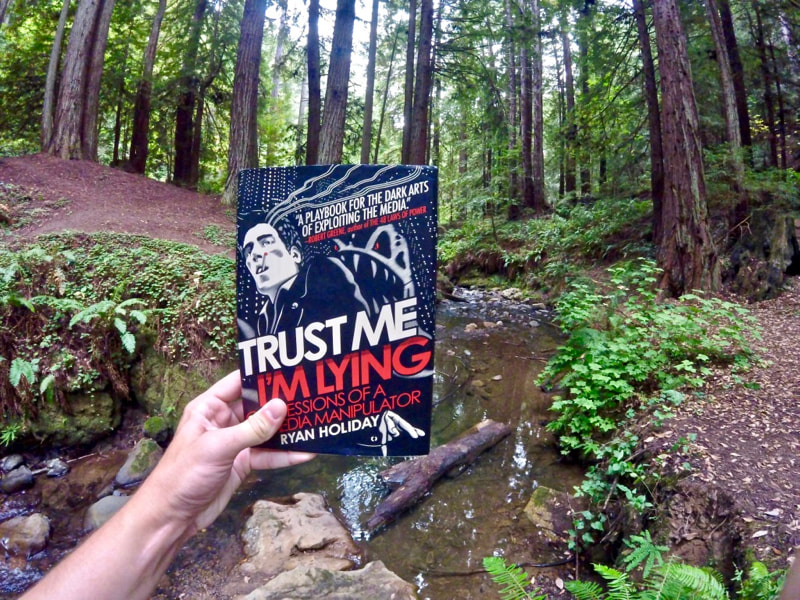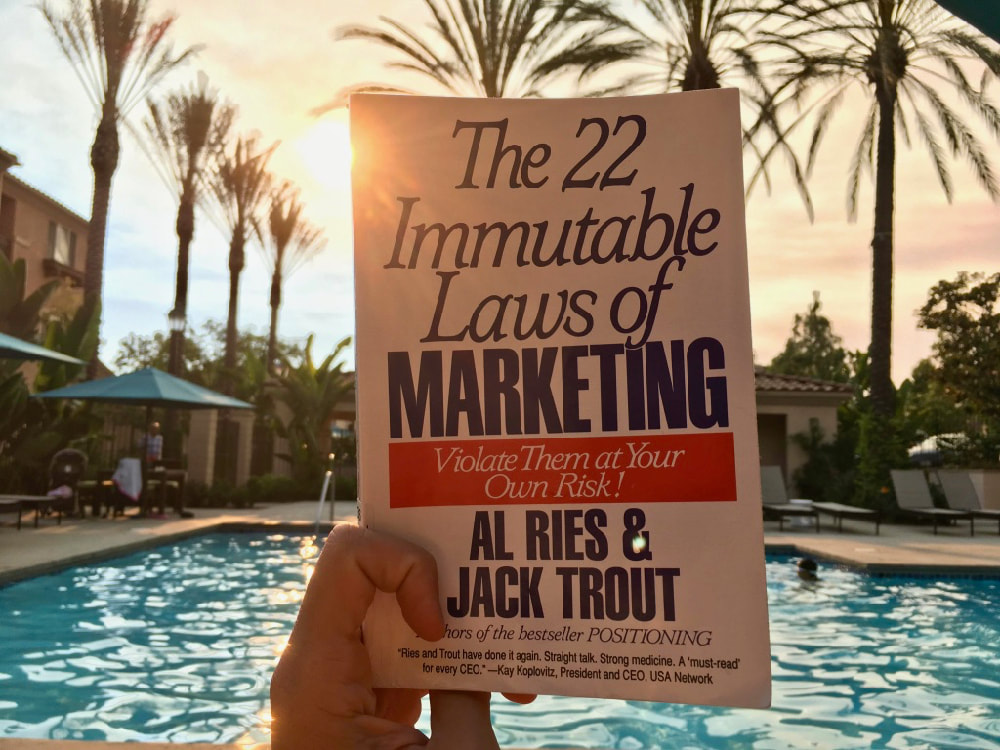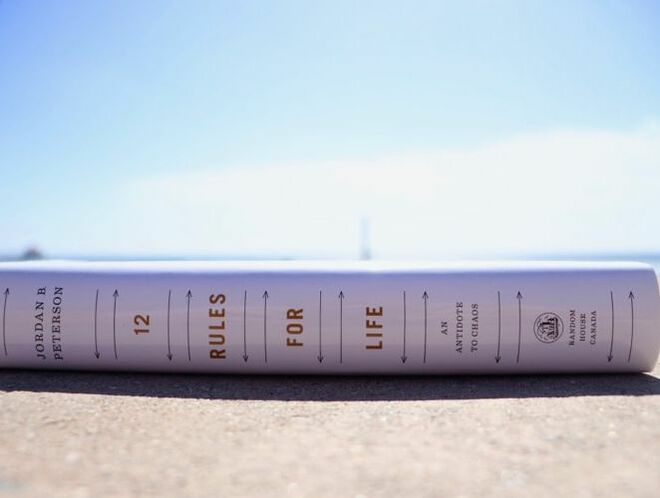"What I was six, [my father] required that I should drink a glass of raw blood every day. To strengthen my mental faculties, he ordained that I should eat calves brains three times per week, washed down with a bottle of beer. Blood, brains, and beer; a noble experiment."
— David Ogilvy
— David Ogilvy
I first heard the name Ogilvy eight years ago on some forgotten episode of Mad Men. Intrigued by the idea of potentially meeting a real-life Don Draper, I cracked open the perennial bestseller, Confessions of an Advertising Man, the next day. Inside were some of the most juiciest secrets on business, leadership, and life, putting Don Draper's own to shame; namely, the practical value of honesty in work and at home. I've (re)read Ogilvy every year since:
From the father of modern advertising's childhood in a string of religious prep schools to his nomadic twenties in French kitchens and Amish farms in Pennsylvania, Ogilvy's life story shines with a spirit of perpetual restlessness and patient discipline. The college dropout's craving for variety and novelty (the man was a farmer, door-to-door salesman, travel companion, chef, and diplomatist) eventually led him to his life's calling in the advertising world. Spinning copy into gold, Ogilvy eventually quit his comfortable job and trekked to Madison Avenue, turning $6,000 into $60+ million in billings.
This book is not just for marketers. Blood, Brains, and Beer is a witty, inspiring, and informative self-portrait of a top creative from the 20th Century. His legacy touches all of our lives dozens of times a day in the form of thoughtfully crafted commercials. Ogilvy wrote the books—literally—on how to create successful ads by way of honest and clear communication, respect for the audience's mind and time, and value-oriented, tasteful stories. His ad agency of "gentlemen with brains" set the bar high in the '50s and '60s—a benchmark that creatives should still reach toward for the sake of their own projects and person. [JG]
- Confessions is high-level; witty, eloquent, and mindset-shaping.
- On Advertising is tactical, creative and packed with direct instruction.
- Unpublished is a mosaic of letters, notes, memos, speeches, ads, & interviews.
- Blood is autobiographical, meditative, yet blunt.
From the father of modern advertising's childhood in a string of religious prep schools to his nomadic twenties in French kitchens and Amish farms in Pennsylvania, Ogilvy's life story shines with a spirit of perpetual restlessness and patient discipline. The college dropout's craving for variety and novelty (the man was a farmer, door-to-door salesman, travel companion, chef, and diplomatist) eventually led him to his life's calling in the advertising world. Spinning copy into gold, Ogilvy eventually quit his comfortable job and trekked to Madison Avenue, turning $6,000 into $60+ million in billings.
This book is not just for marketers. Blood, Brains, and Beer is a witty, inspiring, and informative self-portrait of a top creative from the 20th Century. His legacy touches all of our lives dozens of times a day in the form of thoughtfully crafted commercials. Ogilvy wrote the books—literally—on how to create successful ads by way of honest and clear communication, respect for the audience's mind and time, and value-oriented, tasteful stories. His ad agency of "gentlemen with brains" set the bar high in the '50s and '60s—a benchmark that creatives should still reach toward for the sake of their own projects and person. [JG]
WHO WAS DAVID OGILVY?
After dropping out of his English college and moving to France to cook 'in a great kitchen' for 68 hours a week, David Ogilvy then returned to the home island to sell Aga cookers door-to-door. He next cut his teeth in consumer research with George Gallup at the Audience Research Institutein New Jersey.
At 38, like the man's autobiographical note above, he took a left turn into a copywriter chair at the London ad agency Mather and Crowther. During WWII, he served in the field of espionage and wartime propaganda at Camp X, successfully sabotaging the reputation of business supplying the Nazis with industrial materials.
After the war, and a full decade at Gallup, Ogilvy started his own agency with the support of Mather and Crowther. In ten years, he turned $6,000 into over $60+ million in billings on Madison Avenue. Ogilvy is known as 'the father of modern advertising' and his book Confessions of an Advertising Man, a tongue-in-cheek-titled, tour-de-force on business ethics published in '63, remains a perennial seller to this day.
At 38, like the man's autobiographical note above, he took a left turn into a copywriter chair at the London ad agency Mather and Crowther. During WWII, he served in the field of espionage and wartime propaganda at Camp X, successfully sabotaging the reputation of business supplying the Nazis with industrial materials.
After the war, and a full decade at Gallup, Ogilvy started his own agency with the support of Mather and Crowther. In ten years, he turned $6,000 into over $60+ million in billings on Madison Avenue. Ogilvy is known as 'the father of modern advertising' and his book Confessions of an Advertising Man, a tongue-in-cheek-titled, tour-de-force on business ethics published in '63, remains a perennial seller to this day.
"In advertising, the beginning of success is to be different."
OTHER QUOTES I PONDERED
| {*} “When I was sixteen we were standing in a dense crowd outside the Duomo in Florence, waiting for the flight of the mechanical pigeon which signals the arrival of the Holy Ghost. Suddenly, I spied a girl, the most beautiful I had ever seen, and started elbowing my way through the crowds in her direction…” {*} “If you want to follow my example, have is the recipe: First, make a reputation for being a creative genius. Second, surround yourself with partners who are better than you are. Third, leave them to get on it.” {*} "Top bananas have no monopoly on ideas." {*} “Too many people are involved in the advertising process. Too many levels of approval. Too many committees. Committees can criticize, they cannot create. That is why so many commercials look like the minutes of a committee meeting.” {*} "Search all the parks in all the cities. You'll find no statues of committees." |
"We sell—or else." — David Ogilvy
YOU MAY ALSO LIKE
| EXTREME OWNERSHIP: HOW U.S. NAVY SEALS LEAD AND WIN Jocko Willink
| TRUST ME, I'M LYING: CONFESSIONS OF A MEDIA MANIPULATOR Ryan Holiday
|

